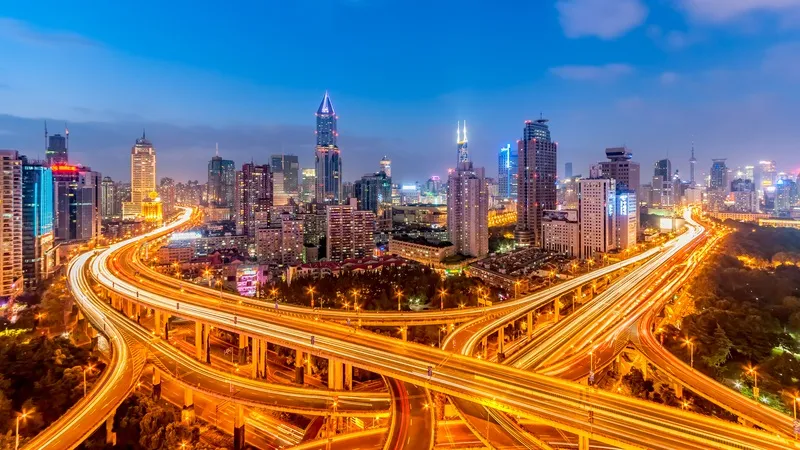German software company SAP plans to enter into a strategic cooperation with the Chinese government on the development of intelligent transportation systems to help manage traffic in China’s fast-growing urban areas over the coming decades. SAP and the Chinese High-Way Group plan to enter into broad collaboration for research on integrated solutions for transportation communications and the development of intelligent traffic management systems leveraging advanced software solutions from SAP for big data pow
May 30, 2013
Read time: 2 mins
German software company 7352 SAP plans to enter into a strategic cooperation with the Chinese government on the development of intelligent transportation systems to help manage traffic in China’s fast-growing urban areas over the coming decades. SAP and the Chinese High-Way Group plan to enter into broad collaboration for research on integrated solutions for transportation communications and the development of intelligent traffic management systems leveraging advanced software solutions from SAP for big data powered by the SAP HANA platform, cloud computing and mobile computing.
“Urbanisation is one of the biggest challenges for China with more than 400 million people expected to be added to China’s urban population by 2025,” said Gerd Oswald, member of the executive board of SAP. “The intelligent management of public transportation is critical for sustainable economic growth and the long-term socioeconomic development in China. We are very delighted about our strategic collaboration plans with the Chinese government on a broad scale to develop intelligent transportation systems to help make the world run better and improve people’s lives. The collaboration should help China manage its next phase of sustained growth with the help of advanced technology from SAP for big data analysis and predictive analytics, mobile computing and cloud-based solutions.”
China’s total investment in intelligent transportation systems has grown continuously and the amount of transportation data generated through metro, buses, taxis and traffic cameras, among others, is tremendous. The existing IT environment lacks the ability for predictive and advanced data analysis to proactively manage different traffic and transportation scenarios to provide better services to China’s citizens and help better urban planning.
SAP plans to closely collaborate with the China Ministry of Transport (MoT) and may bring together the comprehensive domain expertise for traffic, logistics and transportation of the MoT as well as research and technology for intelligent transportation.
“Urbanisation is one of the biggest challenges for China with more than 400 million people expected to be added to China’s urban population by 2025,” said Gerd Oswald, member of the executive board of SAP. “The intelligent management of public transportation is critical for sustainable economic growth and the long-term socioeconomic development in China. We are very delighted about our strategic collaboration plans with the Chinese government on a broad scale to develop intelligent transportation systems to help make the world run better and improve people’s lives. The collaboration should help China manage its next phase of sustained growth with the help of advanced technology from SAP for big data analysis and predictive analytics, mobile computing and cloud-based solutions.”
China’s total investment in intelligent transportation systems has grown continuously and the amount of transportation data generated through metro, buses, taxis and traffic cameras, among others, is tremendous. The existing IT environment lacks the ability for predictive and advanced data analysis to proactively manage different traffic and transportation scenarios to provide better services to China’s citizens and help better urban planning.
SAP plans to closely collaborate with the China Ministry of Transport (MoT) and may bring together the comprehensive domain expertise for traffic, logistics and transportation of the MoT as well as research and technology for intelligent transportation.










